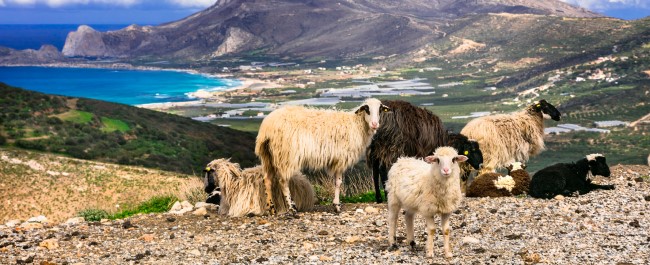Future Pasts: Pastoral archaeology to inform the future of sustainable farming

How can we protect traditional farming practices and use them to inform a more sustainable farming future?
The challenge
Globally, around 200 million people are practising pastoral farming. Research on transhumance communities in Southeast Europe has indicated that as the climate becomes warmer the pastures are becoming more arid, and the pastoral communities are being forced to abandon their lifeways and move towards a sedentary form of farming.
Similar issues are experienced by other nomadic farming communities across the Mediterranean, South America, the Indian subcontinent, and the central African belt. Recent research has also indicated that such traditional animal farming practices have a significant lower carbon footprint than sedentary industrial scale farming.
This raises the question; how can we protect these traditional farming practices and use them to inform a more sustainable future?
What we're doing
This project aims to:
- Run a pilot case study to create a blueprint methodology, using cross faculty expertise, that address the risks that pastoral communities are facing due to the climate change, and
- inform future sustainable farming based on practices used in the past.
To achieve these aims, a small pilot study of a small transhumance community in Northwest Greece is being used. We are building a people-climate biography approach, seeking to understand the relationship that these groups have had with their natural surroundings over the last 500 years and how the current climate emergency and reduced water levels are changing their lifeways.
We employ paleoclimate reconstruction, palaeopopulation health and computer modelling, to understand risks, record practices, and project the future for the community under study and beyond.
How it helps
This project will enable us to make recommendations on how the impact of climate change on nomadic pastoralists should be recorded and addressed, and on how such traditional practices can be supported and more widely applied for a lower carbon footprint.
Investigators
- Dr Konstantinos Trimmis, Department of Anthropology and Archaeology
- Dr Christianne Fernée, Department of Anthropology and Archaeology
- Dr Fotis Sgouridis, Geographical Sciences
- Dr Jamie Lewis, Earth Sciences
- Dr Yusuf Mahadik, Faculty of Engineering
- Prof David Richards, Geographical Sciences
- Dr Melpomeni Perdikopoulou (Aristotle University of Thessaloniki)
- Dr Georgios Lazaridis (Aristotle University of Thessaloniki)
- Konstanza Kapsali (Aristotle University of Thessaloniki)
 Lead researcher profile
Lead researcher profile
Dr Konstantinos Trimmis, Department of Anthropology and Archaeology
Related research centres
Partner organisations
- Aristotle University of Thessaloniki
Funders
- Cabot Institute for the Environment Innovation Fund